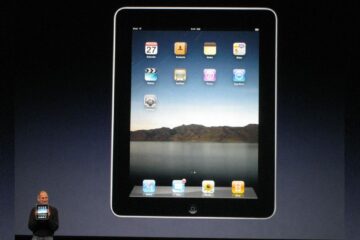It was discovered that the way in which kids play on the tablet can be telling when it comes to the condition – with those with it tending to use greater force and moving their finger differently.

It is now hoped the discovery could lead to earlier diagnosis as well as treatment.
Dr Jonathan Delafield-Butt, with the University of Strathclyde, said: “This is potentially a major breakthrough for early identification of autism, because no stressful and expensive tests by clinicians are needed.
“This new ‘serious game’ assessment offers a cheaper, faster, fun way of testing for autism.
“But more work is needed to confirm this finding and to test for its limitations.”
On a tablet, children with autism played games that were able to measure their movements and gestures, it was revealed they used greater force and with a different distribution than those who develop typically.
The research was carried out as collaboration between the University of Strathclyde and colleagues at the start-up Harimata – who believe that using fun iPad games to track players’ hand movements is less intrusive way to diagnose autism.

The study, which was published in the Nature group journal Scientific Reports, said: “We decided to test whether or not we could identify autism-specific motor patterns in the gameplay of children as they engaged with a smart tablet computer (iPad mini) under natural conditions and with minimal instructions.
“We reasoned this would provide more reliable information on the child’s spontaneous motor behaviour than currently available, and allow analysis of the nature of the motor disturbance by accurate measure of the child’s spontaneous, kinematic pattern of purposeful, goal-directed movements in gameplay.”
For their work, the experts added a special code to two commercially available kids’ games in order for them to capture the sensor and touch-screen data needed.


Anna Anzulewicz, director of research at Harimata, said: “Our aim was to develop a test that would be intuitive, fast, fun and engaging for the children.
“iPad-based games seemed to be perfect, and they are embedded with powerful sensors, which allow for the precise measurement of the children’s play dynamics,’ said During the study, researchers examined movement data gathered from 37 children with autism, aged three to six years and 45 children without the disorder ranging from ages four through seven.”

The kids taking part were asked to play games on an iPad mini placed on a table – so the only movement gathered would be from each child’s fingers.
The goal of the main game was for the player to divide a piece of food and share it among four other children on the screen.
The second game focused on creativity, asking that players colour in the outline of an object.
Once the games were completed, the researches ran the data through a machine learning algorithm using the 262 features from the touch screen and sensors – and the results were then compared.

Signs and symptoms of ASD (from NHS Choices)
Symptoms of ASD include having problems with social interaction and communication.
In early infancy, some children with ASD don’t babble or use other vocal sounds.
Older children have problems using non-verbal behaviours to interact with others – for example, they have difficulty with eye contact, facial expressions and body language.
They may give no or brief eye contact and ignore familiar or unfamiliar people.
Children with ASD may also lack awareness of and interest in other children.
They’ll often either gravitate to older or younger children, rather than interacting with children of the same age. They tend to play alone.
The study reads: “Machine learning analysis of the children’s motor patterns identified autism with up to 93% accuracy,
“Analysis revealed these patterns consisted of greater forces at contact and with a different distribution of forces within a gesture, and gesture kinematics were faster and larger, with more distal use of space.’
“These data support the notion disruption to movement is a core feature of autism, and demonstrate autism can be computationally assessed by fun, smart device gameplay.”
[Source:-The Sun]



